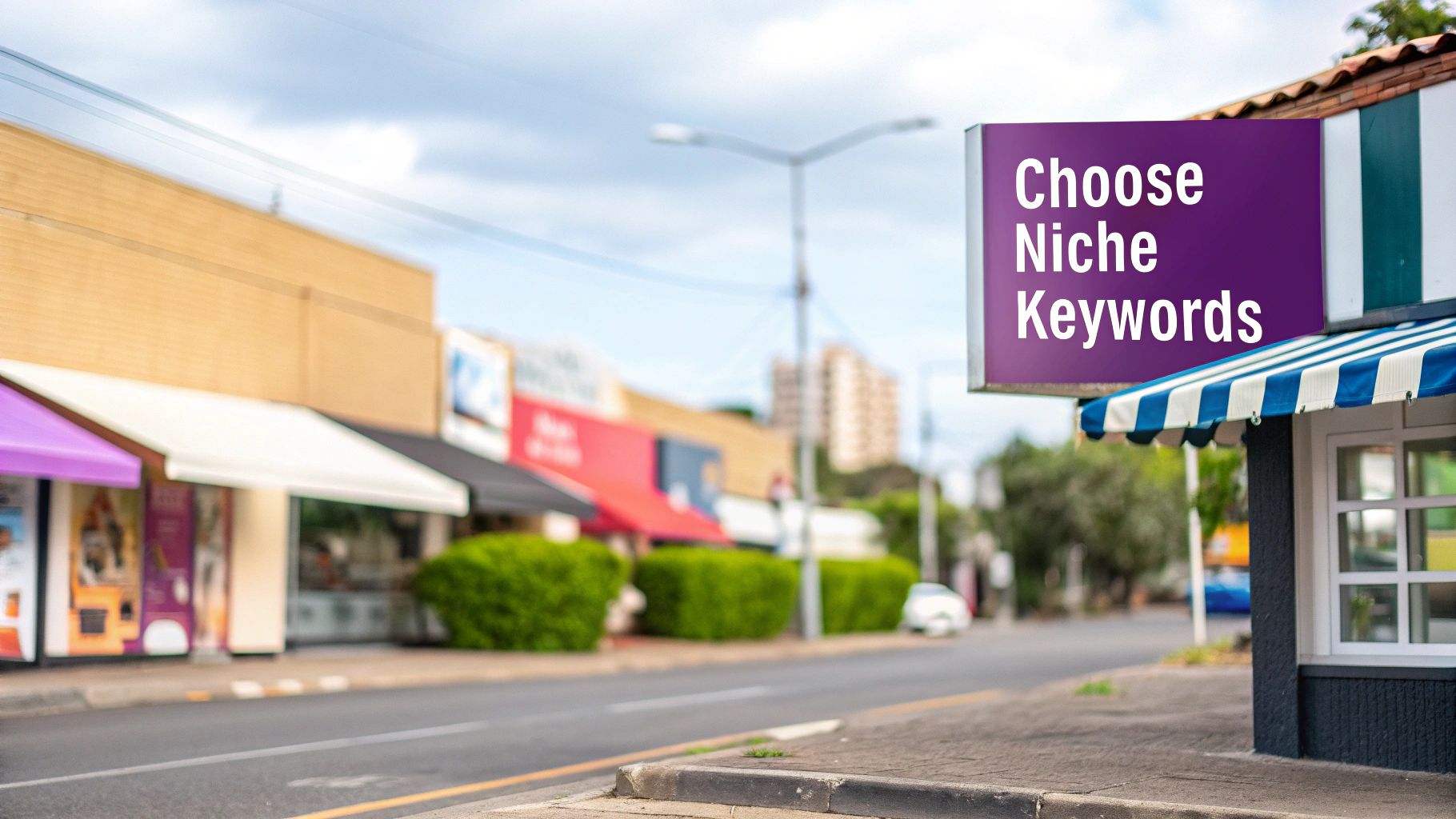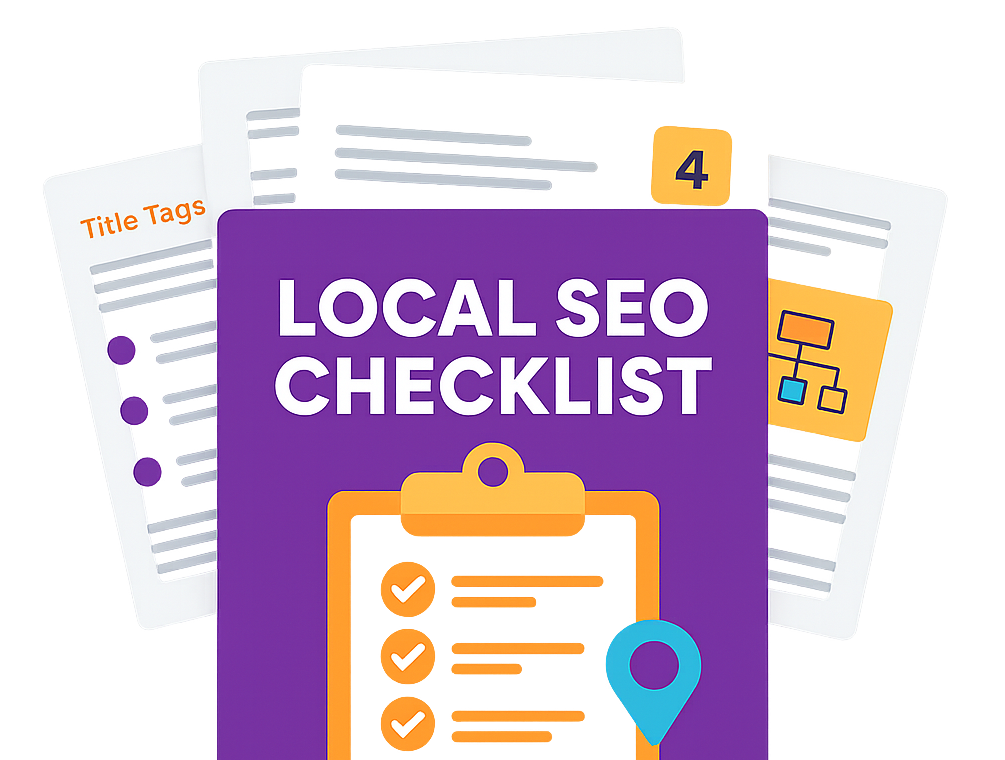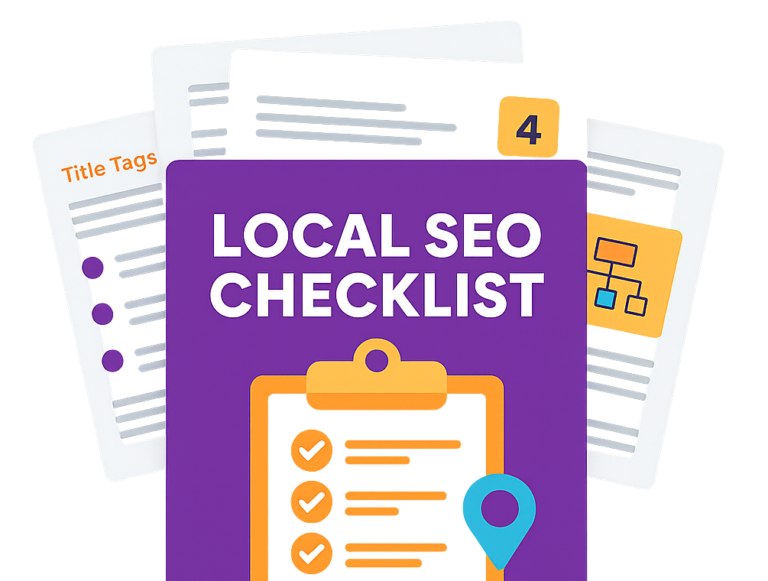Finding low-competition keywords is all about spotting the search terms your ideal customers are using that aren't already swamped by the big players. It’s a strategic way of targeting niche, specific phrases so you can rank faster, attract traffic that’s ready to convert, and give your business a genuine competitive edge.
It's about working smarter, not just harder, to build your online presence without getting into a fistfight with established giants over the most crowded search terms.
Why Chasing Big Keywords Is Holding You Back
Jumping into search engine optimisation can feel like trying to out-shout the competition in a packed stadium. Too many UK businesses fall into the trap of thinking that targeting high-volume, generic keywords like "digital marketing" or "accountant" is the only way to win.
But this approach often leads to months of wasted effort, a drained budget, and very little to show for it.
The hard truth is that these "big" keywords are fierce battlegrounds. They're dominated by established brands with deep pockets and years of accumulated website authority. For a small or medium-sized business, trying to rank for these terms is an uphill struggle that you're unlikely to win.

This is where you need a shift in mindset. Instead of fighting a losing battle, the smarter move is to focus your energy on discovering and targeting low-competition keywords.
The Power of Niche Search Terms
Low-competition keywords are typically longer, more specific phrases that attract a smaller but far more engaged audience. Think about the difference between someone searching for "shoes" versus someone searching for "waterproof walking boots for wide feet UK". The first person is just browsing; the second knows exactly what they want and is probably ready to buy.
This targeted approach brings some clear advantages to the table:
- Faster Rankings: It’s significantly easier and quicker to land a page-one ranking for a term that isn't as competitive.
- Higher Conversion Rates: The searcher's intent is crystal clear and highly specific, meaning the traffic you attract is much more likely to turn into leads or sales.
- Builds Topical Authority: Consistently ranking for related niche terms signals to Google that you're an expert in your field, which helps your entire website rank better over time.
- Cost-Effective SEO: You get a much better return on your investment by focusing your content and optimisation efforts where they can actually make an impact.
By focusing on these overlooked phrases, you connect directly with a qualified audience that larger competitors often ignore. It's about finding the gaps in the market and owning them.
This strategy is becoming more and more vital for UK businesses trying to carve out their space online. Recent research found that while 78% of UK businesses feel confident they're using the right keywords, a significant 19% disagree. This confidence gap highlights a massive opportunity for businesses willing to dig a bit deeper and unearth the valuable terms their competitors have missed. You can explore more about these SEO strategy findings and see how a focused keyword approach can set you apart.
Learning how to find low-competition keywords isn’t about shying away from a challenge; it’s about being strategic. It’s how you gain traction, build momentum, and achieve real, measurable results—without needing a multi-million-pound marketing budget.
Using Google to Uncover Hidden Keyword Gems
Before you splash out on a fancy SEO tool, it's worth remembering that your best starting point is often completely free. Google itself is a goldmine. It gives you direct insight into what your potential customers are actually searching for, right now.
Mastering a few simple, manual search techniques can reveal profitable, low-competition keywords that the big, expensive tools sometimes miss.
Why does this work so well? Because it’s based on real, live user data. When you see a suggestion in Google’s Autocomplete or a question in a ‘People Also Ask’ box, you’re looking at queries that real people have typed into that search bar. It’s raw, unfiltered insight into their problems and curiosities.
Think of this as the foundation of your keyword strategy. It helps you understand the language your audience uses before you dive into spreadsheets and data.
Tap into Google's Built-in Features
The Google search results page (SERP) is absolutely packed with features designed to help users find answers faster. For us, these features are clues that point directly towards valuable, long-tail keywords. You just need to know where to look.
Three of the most valuable features are:
- Google Autocomplete: Start typing a query, and Google tries to finish your sentence. These suggestions are gold, revealing popular long-tail variations of your main keyword.
- People Also Ask (PAA): These are the expandable question boxes you see in the results. They're a fantastic source for question-based keywords, which often have less competition and show clear user intent. This is a huge part of modern Answer Engine Optimisation, a strategy all about directly answering user questions.
- Related Searches: Scroll to the very bottom of the page, and you’ll find a list of eight related queries. This is a brilliant way to discover alternative phrasing and related topics you might not have thought of.
Each of these elements gives you a slightly different angle on your core topic. It's how you build a solid, comprehensive list of potential keywords, straight from the source.

A Real-World Example in Action
Let's say you're a plumber in Manchester. Your main service is "boiler repair." Trying to rank for that alone is going to be a tough, uphill battle.
So, you go to Google and start typing "boiler repair manchester". Autocomplete instantly offers up some gems:
- "boiler repair manchester emergency"
- "boiler repair manchester cost"
- "vaillant boiler repair manchester"
- "combi boiler repair manchester no hot water"
Just like that, you've found four highly specific, long-tail keywords. Think about the person searching for "no hot water"—they have a very urgent, specific problem. If you create a page that speaks directly to that issue, you're far more likely to rank and get their business than if you just have a generic "boiler repair" page.
This simple, manual process uncovers the exact language your customers use when they need you most. When you align your content with these specific queries, you stop being just another service provider and become the exact solution to their problem.
Gauge the Competition with Search Operators
Once you have a list of promising keywords, you need a quick way to see who you're up against without firing up a paid tool. This is where a couple of simple search commands, or "operators," come in handy.
Two of the most useful are:
intitle:This command shows you every page that has your exact keyword phrase in its page title. A search forintitle:"emergency plumber in chorlton"will tell you exactly how many other pages are explicitly targeting that term. The page title is a major ranking signal, so this is a great indicator of direct competition.allinurl:This one is even more specific. It shows you results where all the words in your phrase appear in the URL itself. For example,allinurl:gas safety certificate didsburywill reveal competitors who have gone to the trouble of creating dedicated landing pages for that exact service in that specific location.
If you run these searches and find only a handful of results—or better yet, none—you've likely stumbled upon a low-competition keyword. You've found a gap in the market that you can fill with your own content. This is a crucial, practical step to validating your ideas and finding those genuine quick wins.
Using SEO Tools to Supercharge Your Research
While getting your hands dirty with manual Google searches gives you a real feel for what your customers are thinking, SEO tools provide the hard data you need to make properly informed decisions. Think of them as your research supercharger. They take your initial ideas and show you the statistical reality behind them, helping you find those low-competition keywords at scale.
Platforms like Ahrefs, SEMrush, and KeySearch aren't just for pulling lists of keywords; they're for understanding the entire competitive environment. They crawl and analyse billions of search results, giving you access to metrics that are simply impossible to figure out on your own. This data is what turns guesswork into a calculated strategy.
Find What’s Already Working with a Keyword Gap Analysis
One of the most powerful things you can do with these tools is run a keyword gap analysis (sometimes called a content gap analysis). The concept is brilliantly simple: it shows you which keywords your competitors are ranking for, but you aren't.
It’s the digital equivalent of seeing a queue outside the shop across the road and finding out what they're selling that you’re not.
The process is usually straightforward:
- Pop in your own website's domain.
- Add the domains of two or three of your closest competitors.
- Let the tool work its magic and generate a list of keywords where they show up in search results, but you’re nowhere to be seen.
Instantly, you have a list of proven, relevant terms that are already sending traffic to businesses just like yours. You're not starting from a blank page; you're starting with validated opportunities. For a closer look at the different platforms and their features, check out our detailed guide on choosing the right SEO tools for your business.
Filtering for the Golden Opportunities
A raw keyword gap analysis can spit out thousands of results, which, let's be honest, isn't very helpful. The real skill is in applying smart filters to cut through the noise and pinpoint the low-competition gems.
Most professional SEO tools let you filter your list by a few crucial metrics. Here’s what you should focus on:
- Keyword Difficulty (KD): This is the tool's own score (usually out of 100) that estimates how tough it will be to crack the first page. To find low-competition keywords, start by filtering for a KD score of 20 or less.
- Search Volume: This tells you the estimated number of times a keyword is searched each month. Don't be put off by smaller numbers here. A term with 50-200 monthly searches can be incredibly valuable if the person searching is ready to buy.
- SERP Features: Use filters to see which keywords trigger special results like "People Also Ask" boxes or featured snippets. Nabbing one of these spots can give you massive visibility, even if you aren't in the number one organic position.
By layering these filters, you can systematically whittle down a huge list of possibilities into a short, actionable list of high-potential, low-competition keywords that are a perfect fit for your business.
The search behaviour in the UK really backs up this strategy. According to some fascinating UK search behaviour findings, over 94% of keywords get ten or fewer searches per month, while a tiny 0.0008% get over 100,000 searches. This means the vast majority of search queries are low-volume opportunities that UK businesses can realistically target and win.
Digging into Specialised Tool Features
Beyond the basic gap analysis, modern SEO tools have specialised features designed to uncover different kinds of low-competition keywords. It’s well worth exploring these to round out your research.
A "Questions" report, for instance, will pull all the question-based searches related to your topic (who, what, when, where, why, how). These are often long-tail keywords with crystal-clear user intent and much lower competition, making them perfect for blog posts or FAQ pages.
Many tools also now offer topic cluster generators. These features analyse the top-ranking pages for a broad topic and suggest a whole series of related, less competitive subtopics. This helps you build topical authority, which signals to Google that you're an expert in your field and helps all your related pages rank higher over time.
How to Actually Prioritise Your Keyword List
So you've got a long list of potential keywords. Great. But a spreadsheet full of terms isn't a strategy—it's just raw data. To turn that list into a genuine plan for growth, you need to dig deeper than just search volume and difficulty scores. A truly effective approach means prioritising opportunities based on their actual business value.
This is where you start asking the tough questions. How relevant is this keyword to what we actually sell? What is the searcher really trying to do? And most importantly, which of these terms will attract people who are ready to become customers?
Building Your Prioritisation Framework
The best way to make sense of your keyword list is to create a simple scoring system. This takes the guesswork and emotion out of the equation, letting you objectively pinpoint the terms that strike the perfect balance between opportunity and business impact. You can knock this up easily in a spreadsheet.
Think of it as a filtering process. You start with a big pool of ideas, then systematically refine them until you're left with the genuine gold.

This workflow shows it’s about systematic refinement, not just raw discovery. To build your own scoring system, you just need to analyse each potential keyword against a few core metrics. By assigning a score to each factor, you can generate a final, objective ranking.
Scoring Criteria Beyond the Basics
Forget focusing only on volume and difficulty. A smarter model brings in factors directly tied to your business goals. These are the columns you should have in your spreadsheet.
1. Search Intent (The 'Why')
This is, without a doubt, the most important factor. What does the user want to achieve with their search? Group your keywords into three main categories:
- Informational: The user wants an answer to a question (e.g., "how does a combi boiler work?"). These are perfect for top-of-funnel blog content that builds awareness.
- Commercial: The user is weighing up their options or comparing brands (e.g., "best Worcester Bosch boiler installer"). This traffic is much closer to making a decision.
- Transactional: The user is ready to buy or take action now (e.g., "emergency boiler repair Cambridge"). These are your highest-value keywords, hands down.
2. Business Relevance (Scale 1-5)
How closely does the keyword align with a core product or service you offer? For a heating engineer, a keyword like "Vaillant boiler E133 fault code" is incredibly relevant (Score: 5). On the other hand, "new boiler grants" might be less of a direct fit (Score: 2). Be honest with yourself about how well you can actually satisfy the searcher's needs.
3. Conversion Potential (Scale 1-5)
This metric is your best guess at how likely a visitor from this keyword is to become a customer. A transactional keyword like "get a boiler service quote" has massive conversion potential (Score: 5). An informational query like "what is a condensing boiler?" has much lower immediate potential (Score: 1), but it's still valuable for building authority and trust over time.
By combining these scores, you transform a messy list of possibilities into a clear, prioritised roadmap. You're no longer just chasing random traffic; you're strategically targeting traffic that will actually grow your business.
Once you have this simple framework, you can build a scoring matrix to make prioritisation completely objective.
Keyword Prioritisation Scoring Matrix
| Keyword | Monthly Volume | Keyword Difficulty | Search Intent | Business Relevance (1-5) | Final Score |
|---|---|---|---|---|---|
| emergency boiler repair Ely | 70 | 12 | Transactional | 5 | Top Tier |
| best boiler installer Cambridge | 50 | 25 | Commercial | 5 | High |
| Worcester Bosch boiler price | 210 | 35 | Commercial | 3 | Medium |
| how to fix leaking radiator | 1,200 | 18 | Informational | 4 | Medium |
| what is a combi boiler | 2,500 | 22 | Informational | 2 | Low |
This kind of table makes it crystal clear where you should focus your energy first. The keywords with the highest scores represent the sweet spot where low competition meets high business value.
If you want to go even deeper, our article on how to choose keywords for your website offers more frameworks and tips. This systematic process ensures that every piece of content you create is a calculated investment designed to deliver a real, measurable return.
Turning Keywords into a Winning Content Plan
Unearthing a list of high-potential, low-competition keywords is a brilliant start, but it's only half the story. The real magic happens when you transform that raw data into a cohesive content plan that actually gets results. This is where you shift from research to execution, strategically weaving your chosen phrases into content that both search engines and your audience will love.
The goal isn't just to rank; it’s to build valuable assets that drive traffic, establish your authority, and ultimately, grow your business. And that requires a methodical approach to both creating content and tracking what happens next.
Integrating Keywords with On-Page SEO
Once you have your prioritised keyword list, the next job is to map each keyword to a piece of content. This might mean writing a new blog post, building out a service page, or simply updating an existing article. The trick is to integrate your target keyword naturally, without sounding robotic or forced—a practice known as on-page optimisation.
Your primary focus should be on getting your main keyword into a few critical spots:
- Page Title (Title Tag): This is arguably the most important on-page ranking factor. Your title needs to be compelling and include your target keyword, ideally near the start.
- Main Heading (H1 Tag): Your H1 heading should clearly state what the page is about and contain the keyword.
- Subheadings (H2, H3): Use subheadings to break up your content and sprinkle in keyword variations and related terms. This improves readability and signals topic relevance to Google.
- Body Content: Mention your keyword within the first 100 words and then a few more times throughout the text, but only where it makes sense.
Remember, you're creating content for people first. Keyword stuffing is an ancient tactic that will only hurt your rankings today. To really nail your on-page efforts and ensure you're ticking all the right boxes, it's worth digging into these SEO optimization best practices. A well-optimised page provides a fantastic user experience while clearly telling search engines what it’s all about.
A winning content plan is more than just a list of keywords; it’s a strategic roadmap. It ensures every article you publish has a clear purpose, a target audience, and a measurable goal, all tied directly back to your business objectives.
For a deeper dive into structuring that roadmap, our complete guide on how to create a content strategy provides a step-by-step framework. It’ll show you how to turn your keyword research into a powerful, long-term plan.
Monitoring Performance and Measuring Success
You can't improve what you don't measure. After publishing your optimised content, you have to track its performance to see what's working and where adjustments are needed. Simply hitting 'publish' and hoping for the best is a recipe for wasted effort.
Setting up rank tracking is the first step. Using an SEO tool, you can monitor your website's position in Google for your target keywords over time. This shows you whether your work is successfully pushing you up the search engine results pages (SERPs). But rankings are just one piece of the puzzle.
To get the full picture, you need to watch a few key performance indicators (KPIs):
- Organic Traffic: Jump into Google Analytics to see how much traffic your new or updated pages are getting from search engines. Is it trending upwards over time?
- Keyword Rankings: Are you climbing the ranks for your target low-competition keywords? Are you starting to pop up for related long-tail variations?
- Click-Through Rate (CTR): In Google Search Console, you can see the percentage of people who see your page in the results and actually click on it. A low CTR might mean your page title isn't grabbing enough attention.
- Conversions: This is the metric that really matters. Are visitors from your new content taking the action you want them to, like filling out a contact form, making a purchase, or signing up for your newsletter?
By regularly checking these metrics, you can measure the true impact of your low-competition keyword strategy. This data-driven feedback loop allows you to double down on what works and refine your approach for continuous improvement, ensuring your SEO efforts deliver a tangible return on investment.
Your Low-Competition Keyword Questions Answered
Even with a solid plan, a few questions always crop up when you're getting to grips with finding low-competition keywords. Getting straight answers can give you the confidence to put this powerful SEO technique into practice and start seeing some real results.
Here are a few of the most common questions we hear from UK businesses just like yours.
What Is a Good Search Volume for a Low-Competition Keyword?
There’s no magic number here. What’s ‘good’ is completely relative to your industry, your goals, and most importantly, the searcher’s intent. It's time to shift your focus from raw volume to genuine business impact.
For a local tradesperson in the UK, a keyword with just 50-100 monthly searches can be pure gold if the intent is right. Think about a term like "emergency roof repair in Bristol"—the volume is low, but the person searching has a serious, urgent problem they need solved right now. On the other hand, a national e-commerce site might set their sights on terms in the 200-1,000 search range.
Here’s the bottom line: A keyword with 50 searches that converts 10% of visitors into customers is far more valuable than one with 1,000 searches that converts no one. Always prioritise relevance and intent over sheer volume.
How Long Does It Take to Rank for These Keywords?
This is one of the best parts. Targeting low-competition terms means you get to see results much faster. While big, highly competitive keywords can take a gruelling 6-12 months (or even longer) to make a dent, you can often see your content climbing the ranks for these easier phrases within 2-4 months.
Of course, a few things can influence that timeline:
- Your Website's Authority: An established site with a good track record will naturally rank faster than a brand-new one.
- Content Quality: A genuinely helpful, comprehensive article that perfectly matches what the searcher wants will always beat thin, basic content.
- Backlink Profile: Building a few high-quality, relevant backlinks to your new content can give it a serious speed boost.
If your website is new, patience is key. Google needs a bit of time to learn to trust your domain.
Should I Ignore High-Competition Keywords Completely?
Absolutely not. But you need to play the long game. A well-rounded SEO strategy has a healthy mix of both. Think of it like building a house: you lay the foundation before you put up the walls and roof.
Low-competition keywords are that essential groundwork. They let you:
- Generate targeted traffic and get some quick wins on the board.
- Build your website's topical authority in a specific niche.
- Gain momentum and credibility in Google's eyes.
As your site’s authority grows from ranking for these easier terms, you'll be in a much stronger position to start going after the more competitive 'pillar' keywords. Use the low-hanging fruit to build strength, which then gives you the power to compete for the big-ticket items over time.
How Do I Find Local Low-Competition Keywords?
For any UK business serving a specific area, local keyword research is non-negotiable. It all starts by simply adding geographic modifiers to your core service terms.
Take your primary service—let’s say 'blocked drain clearance'—and start combining it with the towns, cities, or even specific neighbourhoods you cover. You'd end up analysing phrases like:
- "blocked drain clearance Cambridge"
- "emergency plumber in Ely"
- "CCTV drain survey St Neots"
You can use tools like Google's Keyword Planner to filter search volume by specific regions, which gives you much more accurate data for your target locations across the UK. It's also vital to look at the Google Business Profile results (the map pack) for these searches. That’s where you’ll see who your true local competitors are and spot opportunities to outrank them.
Feeling ready to find the keywords that will actually grow your business but not sure where to start? Let the experts at Bare Digital handle the heavy lifting. We offer a completely free, no-obligation SEO Health Check to pinpoint your biggest opportunities for growth.








